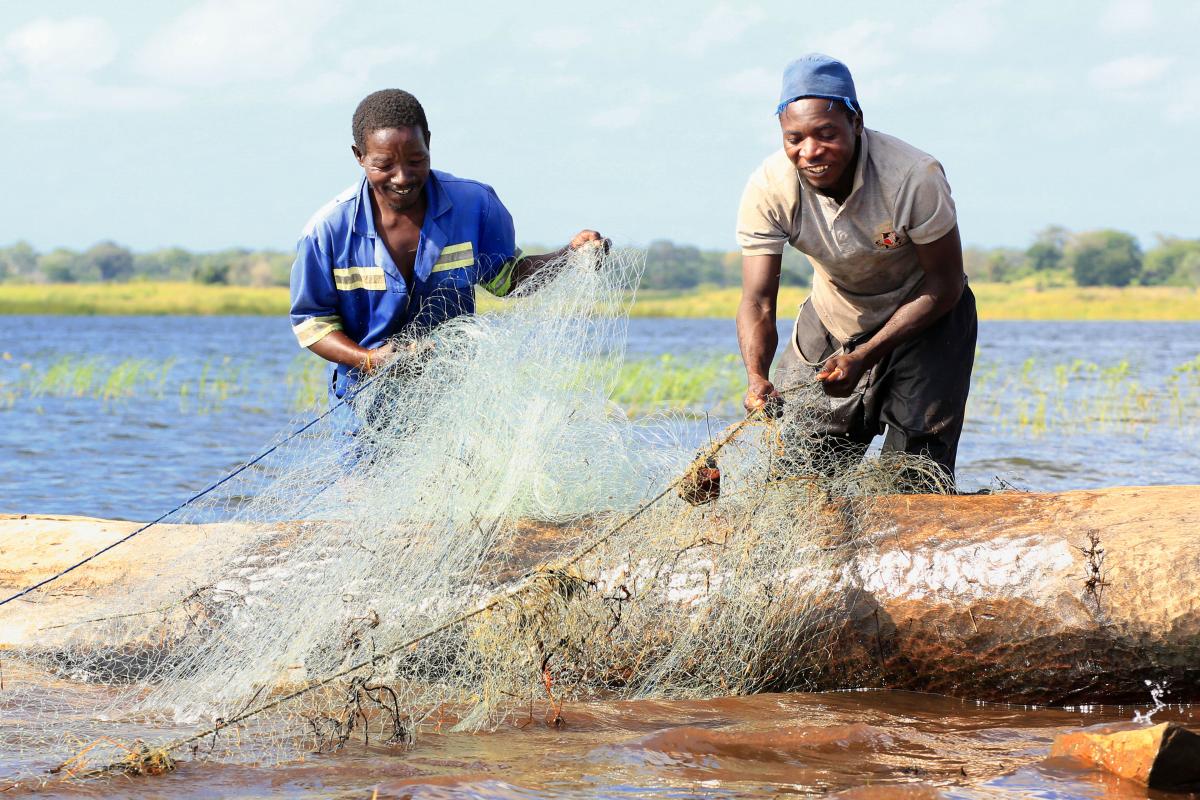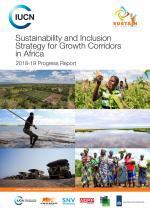SUSTAIN-Africa gains traction on climate-resilient landscape development in Tanzania and Mozambique
As the first phase of the Sustainability and Inclusion Strategy for Growth Corridors in Africa (SUSTAIN-Africa) ended in December 2019, emerging results in governance, integrated natural resources management, and business and investment are contributing to sustainable landscape development.

Photo: ©IUCN Water
SUSTAIN’s progress report for 2018-19 summarises the main achievements of the five-year programme to date. Inclusive governance is central to SUSTAIN and efforts to empower local governance structures helped bring local processes and multi-stakeholder dialogues together to guide improvements in water quality and availability, positive impacts on land-use management practices and sustainable income generation for local communities.
“The formation of an Integrated Kilombero Multi-stakeholder Platform with representatives from the public and private sectors, local communities and their institutions, civil society organisations, and NGOs is an important milestone towards a new form of governance that recognises the value that diverse perspectives bring to long-term planning and sustainable management of natural resources” says Pastor Magingi, SUSTAIN Programme Manager for AWF in Kilombero.
“We are thrilled to see 10 of the Producer Clubs initiated under SUSTAIN graduate to legally registered associations with the land under these associations’ jurisdiction receiving Land User Rights Certificates” says Annette Castella Deputy Director of ADPP Mozambique. “Not only is this an important step towards land security, it creates an added incentive for producers to take care of their land and to conserve natural resources.”
 Photo: ©IUCN Water
Photo: ©IUCN Water
“The establishment of Kalambo Nature reserve, the first Miombo Nature Reserve in Tanzania, is an illustration of how far we’ve come under SUSTAIN in Sumbawanga” says Lucy Fulgence, SNV Deputy Country Director for Tanzania. “In the past, unsustainable practices in the region were widespread leading to the degradation of natural resources, but by working with the Tanzanian government and the local communities we’ve demonstrated the added value of integrating conservation and development.”
Business and investment are important levers in the search for climate-resilient economic models. Engagement with businesses continued to grow over the last few years with a new partnership under development with Cahora Bassa Hydropower and the Zambezi Valley Development Agency in Mozambique. In Tanzania, SUSTAIN gained support from key financial sector actors to collaborate on the adoption and implementation of the Tanzania Sustainable Finance Principles.
“Engagement with economic actors both at landscape and national levels are vital to catalyse change in how our economies value natural resources.” says James Dalton, Director of the Global Water Programme in IUCN. “SUSTAIN has built its partnership approach from the bottom up working with businesses to go beyond their operations and engage at landscape level whilst also building sector and multi-sector coalitions at national level to scale up impact”.
SUSTAIN-Africa is an IUCN-led initiative implementing climate-resilient landscape development to catalyse the transition from business-as-usual to sustainable growth in Africa. Starting in 2014, the initiative has been active in the Southern Agriculture Growth Corridor of Tanzania (SAGCOT) and in the Zambezi Valley in Mozambique. Learning from the first five years together with national and landscape-level dialogues are helping to shape a second phase of SUSTAIN, currently under development.
The SUSTAIN Partnership is composed of IUCN, the IUCN National Committee of the Netherlands (IUCN NL), the African Wildlife Foundation, SNV Netherlands Development Organisation, and Ajuda de Desenvolvimento de Povo para Povo (ADPP Mozambique), with the Micaia Foundation. SUSTAIN also has several strategic partners in each country, including the SAGCOT secretariat and the Vice President’s Office in Tanzania as well as Zambezi Valley Development Agency (ADVZ) and the Ministry of Land, Environment and Rural Development (MITADER) in Mozambique.
SUSTAIN was made possible due to the generous financial support from the Ministry of Foreign Affairs of the Kingdom of the Netherlands.
